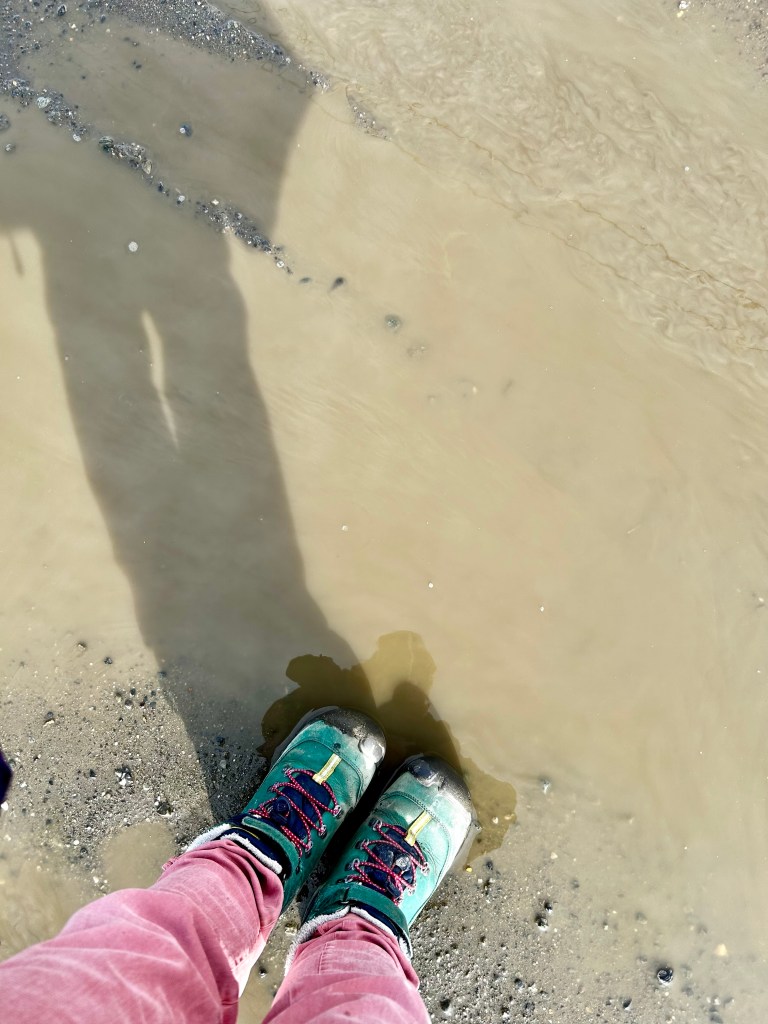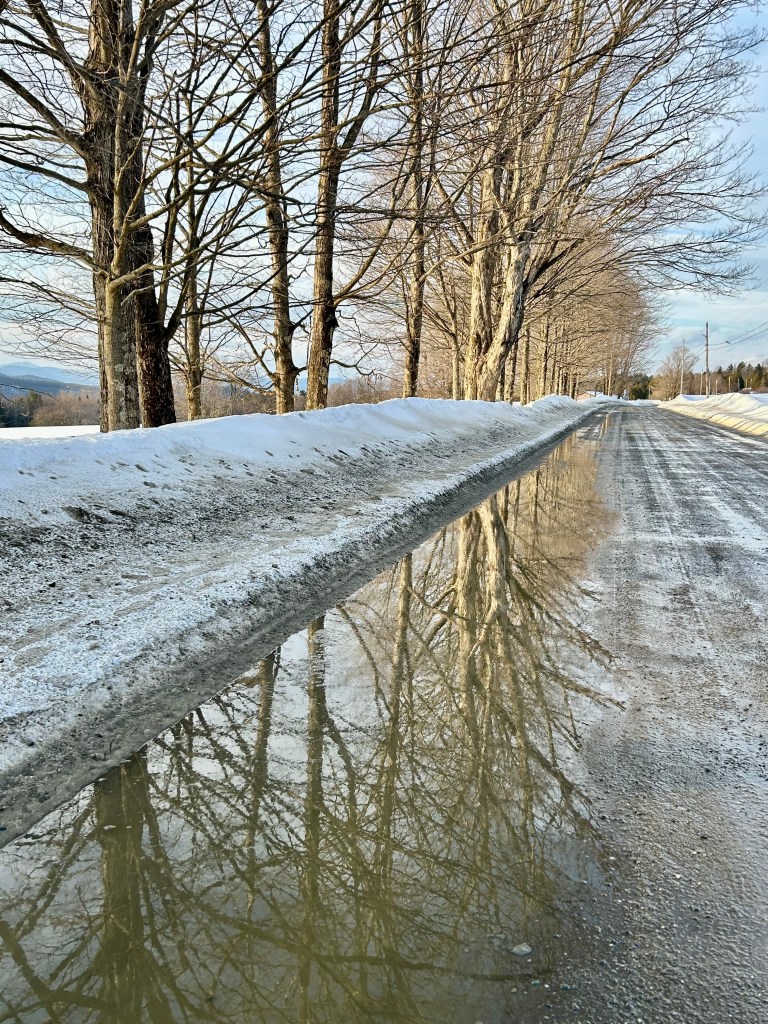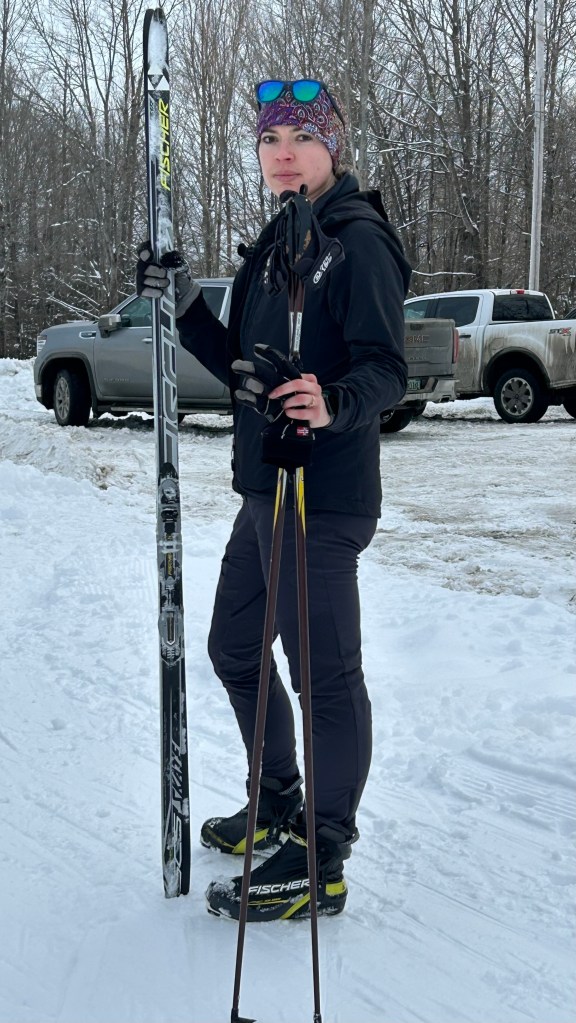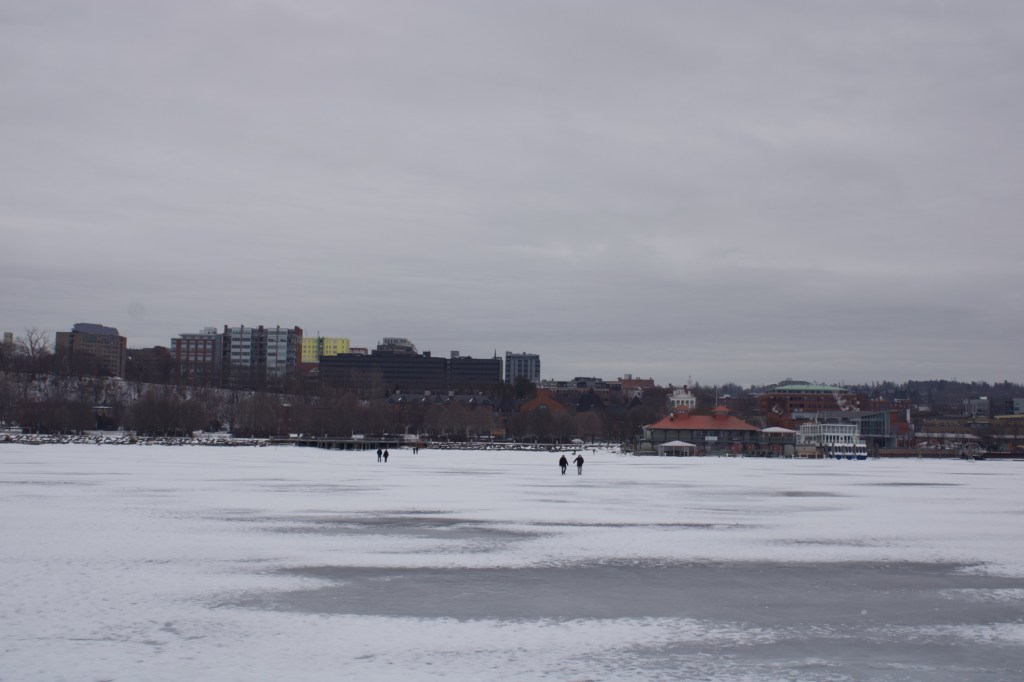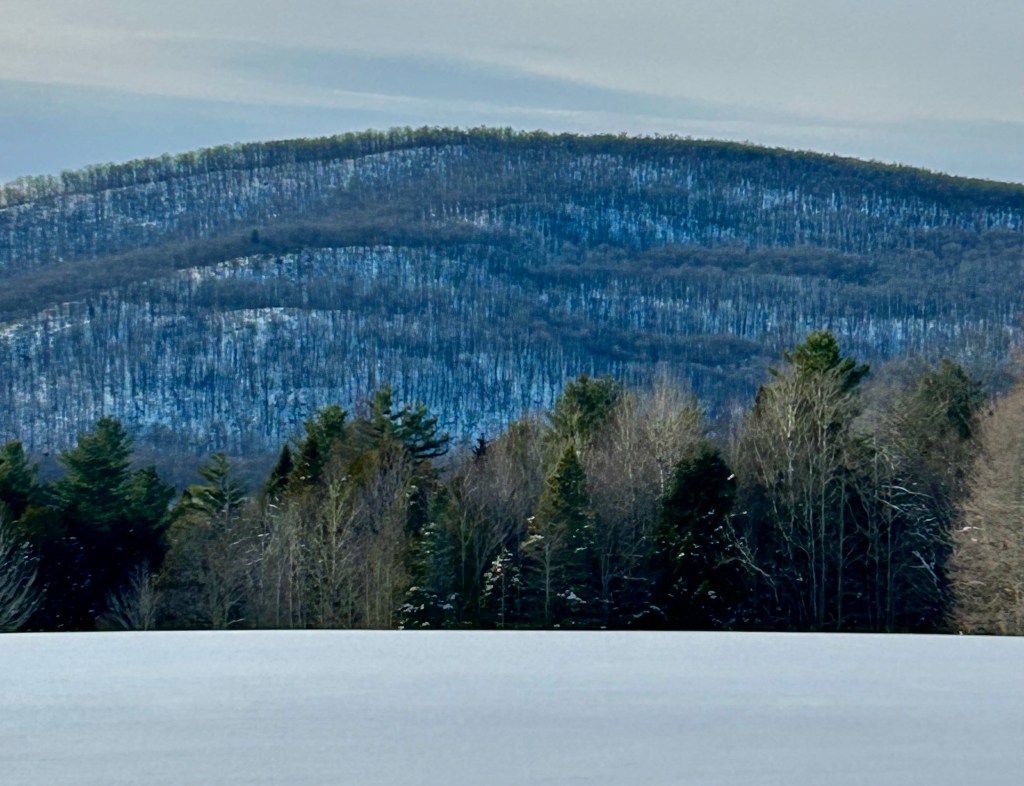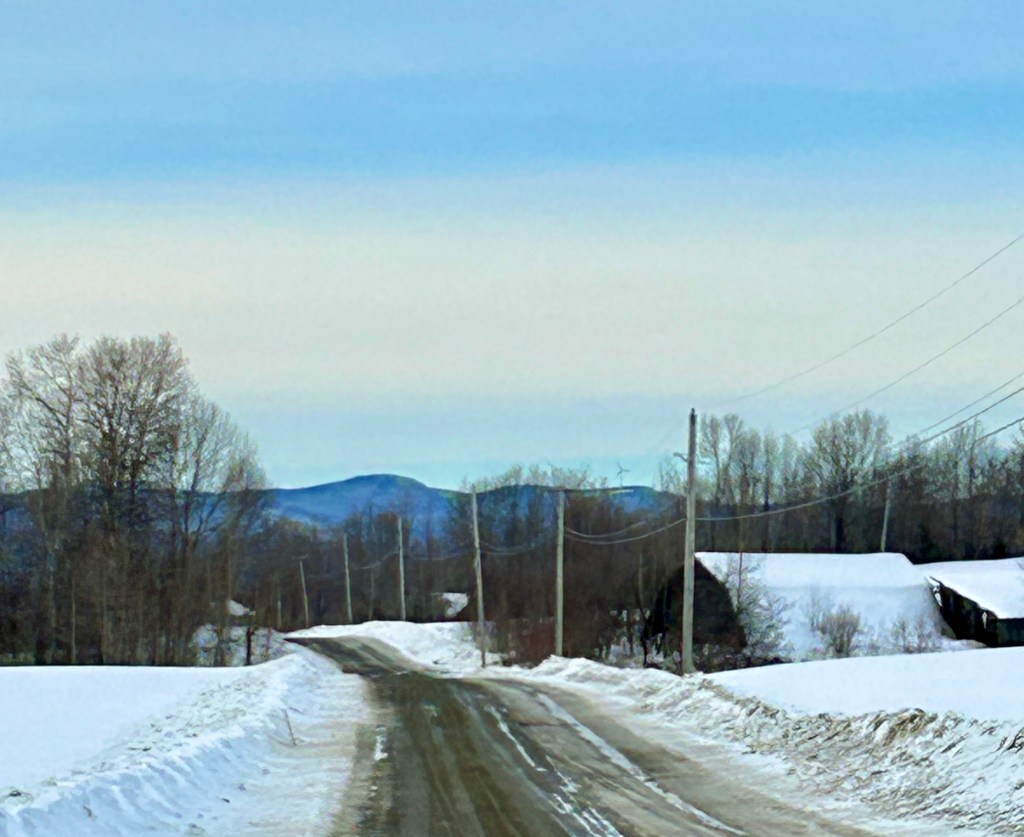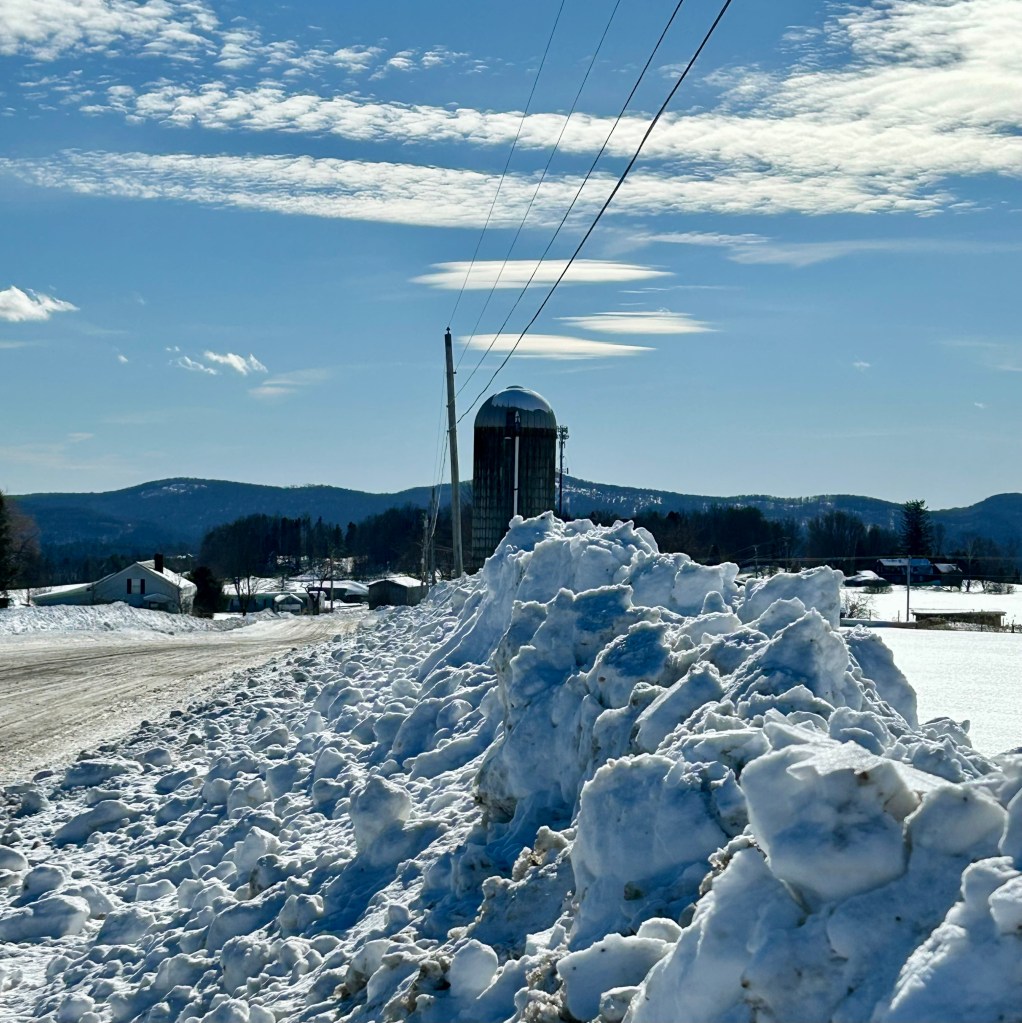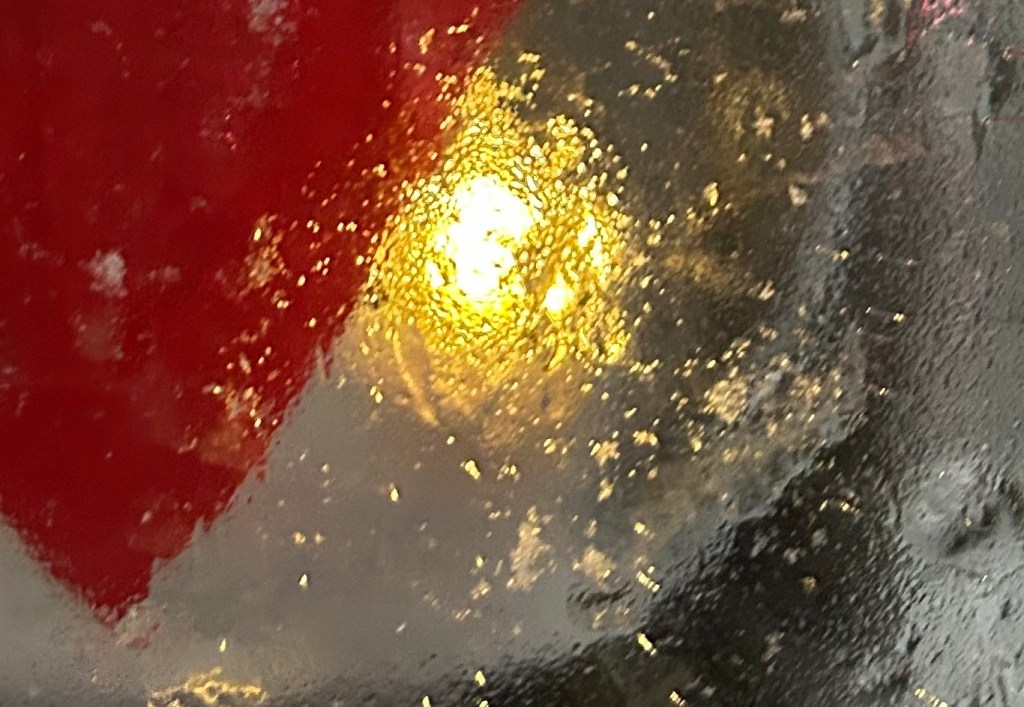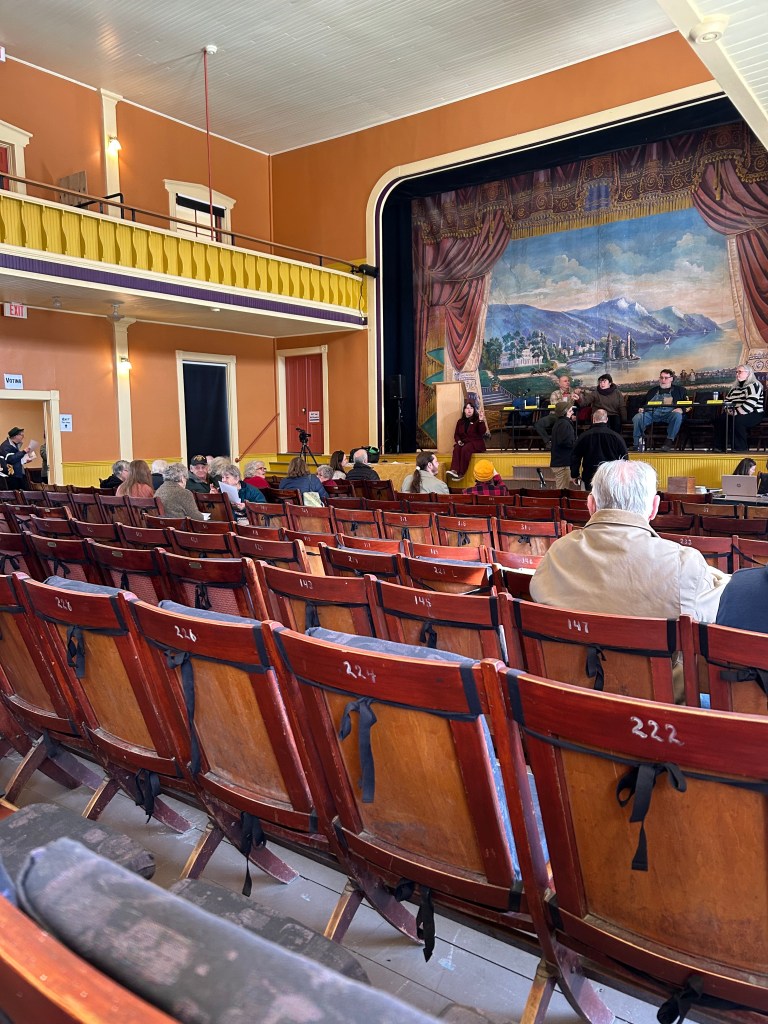
I live in a village with a single blinking yellow light at its intersection. In all those multiple trips to Dartmouth for consultation, treatment, medication, we drove out of town, over the hills, along the Connecticut River, all the way to the Hanover, New Hampshire exit. There, a traffic light greeted us.
For a few months, the village will be rerouted through temporary lights while a crew rebuilds walls to keep the town out of the river and replace a footbridge over the river. For drivers, something to complain about. For walkers, a point of interest.
On town meeting day, in the historic town house, a day of voting, hot emotions, decisions of material import. A school budget voted down.
March is the season of fluctuation between mud and ice. One afternoon, the blowing snow drives bitterly into my eyes; I huddle in my coat. The next afternoon, I tie my coat around my waist, let the breeze push through my hair.
The sun beams with real heat. The earth reveals her immense size. Meanwhile, the humans, with all our passion and fury. I seek both the companionship of people around me — how dearly I treasure this, more and more — and seek solace in solitude, in the chitter of chickadees, the clouds rushing over the sky, the full moon hung over a forested ridgeline, gleaming.
“What I like most about Buddhism really is its fearlessness. So much of what warps people is fear of death and fear of impermanence. So much of what we do is simply strategies to try and hold back death, trying to buy time with material things. So at its best Buddhism provides people with a way of seeing their own frailty: you need less in the way of material objects and fortresses around yourself.”
― Gary Snyder
